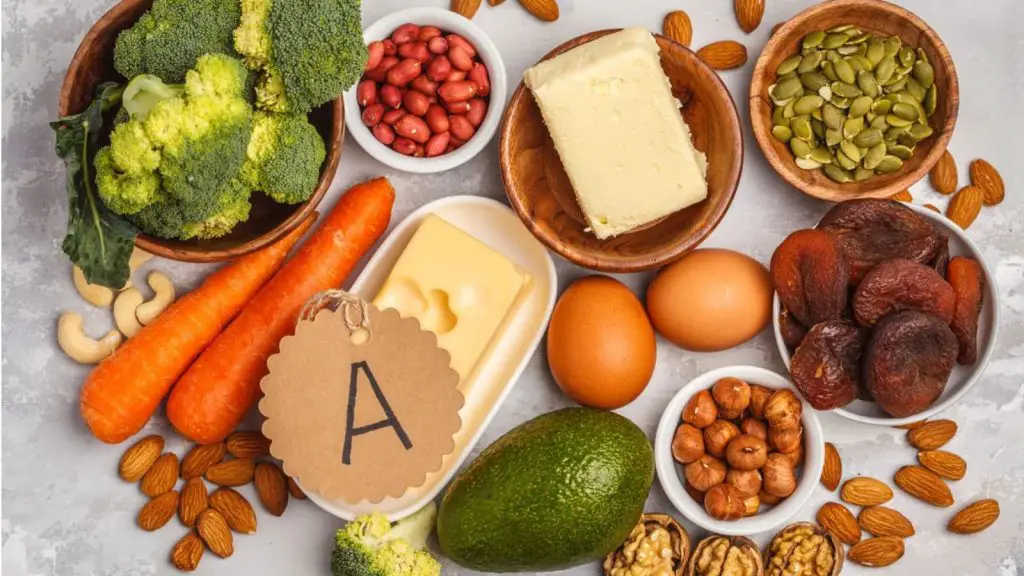Hair growth vitamins play a crucial role in maintaining healthy and vibrant hair. Our hair is often a reflection of our overall health, and ensuring we get the right nutrients is essential for promoting strong, luscious locks. In this article, we will explore the importance of vitamins for hair growth, the best sources of these vitamins, and how you can incorporate them into your daily routine. Whether you’re looking to combat hair loss or simply enhance the health of your hair, understanding the role of vitamins in hair growth is the first step to achieving your hair goals.
The Role of Vitamins in Hair Growth
Vitamins are essential for maintaining healthy hair growth and preventing hair loss. They play a crucial role in nourishing the scalp, strengthening hair follicles, and promoting the production of new hair cells. Here are some key vitamins that are particularly beneficial for hair growth:
Vitamin A

Vitamin A is essential for the growth and development of all cells in the body, including hair cells. It helps produce sebum, which moisturizes the scalp and keeps hair healthy. Foods rich in vitamin A include sweet potatoes, carrots, spinach, and kale.
Vitamin C
Vitamin C is an antioxidant that helps protect hair follicles from damage caused by free radicals. It also helps in the production of collagen, which is necessary for hair growth. Citrus fruits, strawberries, and bell peppers are excellent sources of vitamin C.
Vitamin D
Vitamin D is crucial for hair follicle cycling and hair growth. It helps reduce hair shedding and promotes the growth of new hair follicles. Sunlight exposure is the best source of vitamin D, but it can also be found in fortified foods like dairy products and cereals.
Vitamin E
Vitamin E is a powerful antioxidant that helps reduce oxidative stress and damage to hair follicles. It also improves blood circulation, which is essential for healthy hair growth. Nuts, seeds, and leafy green vegetables are good sources of vitamin E.
B-Vitamins

The B-vitamin group, including Biotin (B7), Niacin (B3), and B5, are essential for maintaining healthy hair growth. Biotin, in particular, is known for its role in strengthening hair and promoting growth. B-vitamins can be found in foods like whole grains, eggs, and nuts.
Incorporating these vitamins into your diet can help improve the health of your hair and promote stronger, more vibrant locks. Additionally, consider taking a daily multivitamin supplement to ensure you’re getting all the essential nutrients for healthy hair growth.
Other Essential Nutrients for Hair Growth
While vitamins play a significant role in hair health, several other nutrients are essential for promoting strong, healthy hair. These include minerals such as iron, zinc, and omega-3 fatty acids.
Iron
Iron is crucial for the production of hemoglobin, which carries oxygen to the hair follicles. Moreover, a deficiency in iron can lead to hair loss and slow hair growth. Foods rich in iron include red meat, spinach, lentils, and fortified cereals. Ensuring you consume enough iron-rich foods can help maintain healthy hair growth.
Zinc
Zinc is essential for maintaining the health of the oil glands around hair follicles. It also plays a role in cell growth and repair, which is important for healthy hair growth. Oysters, beef, pumpkin seeds, and lentils are good sources of zinc.
Omega-3 Fatty Acids
Omega-3 fatty acids are important for nourishing hair follicles and promoting hair growth. They also help reduce inflammation, which can contribute to hair loss. Fatty fish like salmon, walnuts, and flaxseeds are excellent sources of omega-3 fatty acids.
Protein
Protein is essential for hair growth, as hair follicles are made up of mostly protein. Additionally, a diet rich in protein helps promote hair growth and strengthens hair strands. Good sources of protein include lean meats, fish, eggs, and legumes. Ensuring you get enough protein in your diet is crucial for maintaining healthy hair.
Biotin
Biotin, also known as vitamin B7, is a water-soluble vitamin that plays a crucial role in maintaining healthy hair, skin, and nails. It helps strengthen the hair shaft and prevent breakage. Biotin can be found in foods like eggs, nuts, and whole grains.
Incorporating these nutrients into your diet can help improve the health and appearance of your hair, promoting stronger, more resilient locks. Furthermore, consider adding a variety of nutrient-rich foods to your diet to ensure you’re getting all the essential nutrients for healthy hair growth. Adding these foods to your diet can make a significant difference in the health of your hair.
Best Sources of Hair Growth Vitamins
Getting the right vitamins for hair growth is essential for maintaining strong and healthy hair. Here are some of the best food sources for the vitamins that promote hair growth:
Vitamin A
- Sweet Potatoes: Rich in beta-carotene, which the body converts to vitamin A.
- Carrots: Another excellent source of beta-carotene.
- Spinach: Contains iron, beta-carotene, and vitamin C, which all promote hair growth.
- Kale: High in vitamins A and C, as well as other nutrients beneficial for hair health.
Vitamin C
- Citrus Fruits: Oranges, lemons, and grapefruits are rich in vitamin C.
- Strawberries: Another great source of vitamin C.
- Bell Peppers: Particularly red and yellow peppers, which have high vitamin C content.
calciferol
- Fatty Fish: Salmon, mackerel, and sardines are rich in vitamin D.
- Egg Yolks: A good source of vitamin D.
- Fortified Foods: Some dairy products, orange juice, and cereals are fortified with vitamin D.
Vitamin E
- Nuts and Seeds: Almonds, sunflower seeds, and hazelnuts are high in vitamin E.
- Spinach: Also contains vitamin E, making it a great choice for hair health.
B-Vitamins
- Whole Grains: Brown rice, barley, and oats are rich in B-vitamins.
- Eggs: A good source of biotin (B7) and other B-vitamins.
- Legumes: Lentils, beans, and peas are high in B-vitamins and protein.
Incorporating these foods into your diet can help ensure you’re getting the vitamins necessary for healthy hair growth. Consider adding a variety of these foods to your meals to promote strong, luscious locks.
Incorporating Hair Growth Vitamins into Your Routine
Ensuring you get enough vitamins for hair growth is key to maintaining healthy and vibrant hair. Here are some tips on how to incorporate these vitamins into your daily routine:
1. Eat a Balanced Diet
- Include a variety of fruits, vegetables, whole grains, and lean proteins in your meals.
- Incorporate foods rich in vitamins A, C, D, E, and B-vitamins into your diet.
2. Consider a Multivitamin Supplement
- If you have difficulty getting enough vitamins from your diet, consider taking a daily multivitamin supplement.
- Look for a supplement that contains vitamins specifically for hair health.
3. Choose Hair Growth Vitamin-Rich Foods
- Opt for foods that are known to be rich in hair growth vitamins, such as sweet potatoes, citrus fruits, fatty fish, nuts, and seeds.
4. Cook with Hair Growth Vitamins in Mind
- When preparing meals, be mindful of cooking methods that preserve the vitamin content of foods, such as steaming or roasting.
5. Be Consistent
- Incorporating hair growth vitamins into your routine is most effective when done consistently over time.
- Aim to make healthy eating habits a part of your lifestyle for long-term hair health.
6. Stay Hydrated
- Drinking plenty of water is essential for overall health, including the health of your hair follicles.
7. Monitor Your Progress
- Pay attention to how your hair responds to changes in your diet and lifestyle.
- Consult with a healthcare professional if you have concerns about hair loss or vitamin deficiencies.
By incorporating these tips into your daily routine, you can ensure you’re getting the vitamins necessary for healthy hair growth and overall well-being.
Incorporating Hair Growth Vitamins into Your Routine
Ensuring you get enough vitamins for hair growth is essential for maintaining healthy and vibrant hair. Moreover, here are some practical ways to incorporate these vitamins into your daily routine:
1. Eat a Balanced Diet
- Include a variety of fruits, vegetables, whole grains, and lean proteins in your meals. Furthermore, incorporating these foods into your diet can provide a range of essential nutrients that support hair health.
- Incorporate foods rich in vitamins A, C, D, E, and B-vitamins into your diet.
2. Consider a Multivitamin Supplement
- If you have difficulty getting enough vitamins from your diet, consider taking a daily multivitamin supplement.
- Look for a supplement that contains vitamins specifically for hair health.
3. Choose Hair Growth Vitamin-Rich Foods
- Opt for foods known to be rich in hair growth vitamins, such as sweet potatoes, citrus fruits, fatty fish, nuts, and seeds.
4. Cook with Hair Growth Vitamins in Mind
- When preparing meals, be mindful of cooking methods that preserve the vitamin content of foods, such as steaming or roasting.
5. Be Consistent
- Incorporating hair growth vitamins into your routine is most effective when done consistently over time.
- Aim to make healthy eating habits a part of your lifestyle for long-term hair health.
6. Stay Hydrated
- Drinking plenty of water is essential for overall health, including the health of your hair follicles.
7. Monitor Your Progress
- Pay attention to how your hair responds to changes in your diet and lifestyle. Additionally, keeping track of these changes can help you identify what works best for your hair health.
- Consult with a healthcare professional if you have concerns about hair loss or vitamin deficiencies.
By incorporating these tips into your daily routine, you can ensure you’re getting the vitamins necessary for healthy hair growth and overall well-being.
Lifestyle Factors That Affect Hair Growth
Several lifestyle factors can impact the health and growth of your hair. Understanding these factors can help you make informed decisions to promote healthier hair. Moreover, here are some key lifestyle factors that can affect hair growth:
1. Stress
- Chronic stress can lead to hair loss and thinning.
- Practice stress-reducing activities such as yoga, meditation, or deep breathing exercises.
2. Diet
- A poor diet lacking in essential nutrients can lead to hair loss.
- Eat a balanced diet rich in vitamins, minerals, and proteins to support hair health. Furthermore, incorporating nutrient-rich foods into your diet can help nourish your hair follicles and promote healthy hair growth.
3. Sleep
- Lack of sleep can disrupt the hair growth cycle and lead to hair loss.
- Aim for 7-9 hours of quality sleep each night to promote overall health, including hair health.
4. Hair Care Practices
- Over-styling, using harsh chemicals, and excessive heat can damage hair follicles and lead to hair loss.
- Use gentle hair care products and limit the use of heat styling tools. Additionally, excessive use of heat styling tools can damage hair follicles and lead to hair loss. Transitioning to gentler hair care products and minimizing heat styling can help maintain healthy hair.
5. Smoking
- Smoking can restrict blood flow to the hair follicles, leading to hair loss.
- Quit smoking to improve overall health and promote hair growth.
6. Medical Conditions
- Certain medical conditions such as thyroid disorders and hormonal imbalances can contribute to hair loss.
- Consult with a healthcare professional if you suspect a medical condition may be affecting your hair.
7. Hydration
- Dehydration can make hair dry and brittle, leading to breakage.
- Drink plenty of water throughout the day to keep your body and hair hydrated. Additionally, staying hydrated can help maintain the health of your scalp and promote healthy hair growth. Making sure you drink enough water is essential for overall hair health.
8. Exercise
- Regular physical activity can improve blood flow to the scalp, promoting hair growth.
- Incorporate exercise into your routine for overall health and healthy hair.
Conclusion
Maintaining healthy hair growth is not just about using the right products; it’s also about adopting a healthy lifestyle. By addressing key factors such as stress, diet, sleep, and hair care practices, you can promote stronger, healthier hair.
Ensure you’re getting the right vitamins and nutrients for hair growth by incorporating a variety of foods rich in vitamins A, C, D, E, and B-vitamins into your diet. Moreover, consider a multivitamin supplement if needed, and be consistent in your efforts to support hair health. Transitioning to a healthier diet can positively impact your hair’s health.
Lifestyle changes, such as reducing stress, getting enough sleep, and avoiding smoking, can also have a significant impact on your hair’s health. By taking care of your overall health, you’ll also be taking care of your hair.
By making these changes and incorporating hair growth vitamins into your routine, you can promote healthier, stronger hair that looks and feels great. Additionally, remember that the key to healthy hair starts from within. Transitioning to a healthier lifestyle can significantly impact your hair’s health.
Read more about Hair growth in the following articles
Topical Hair Growth Treatments: A Comprehensive Guide


